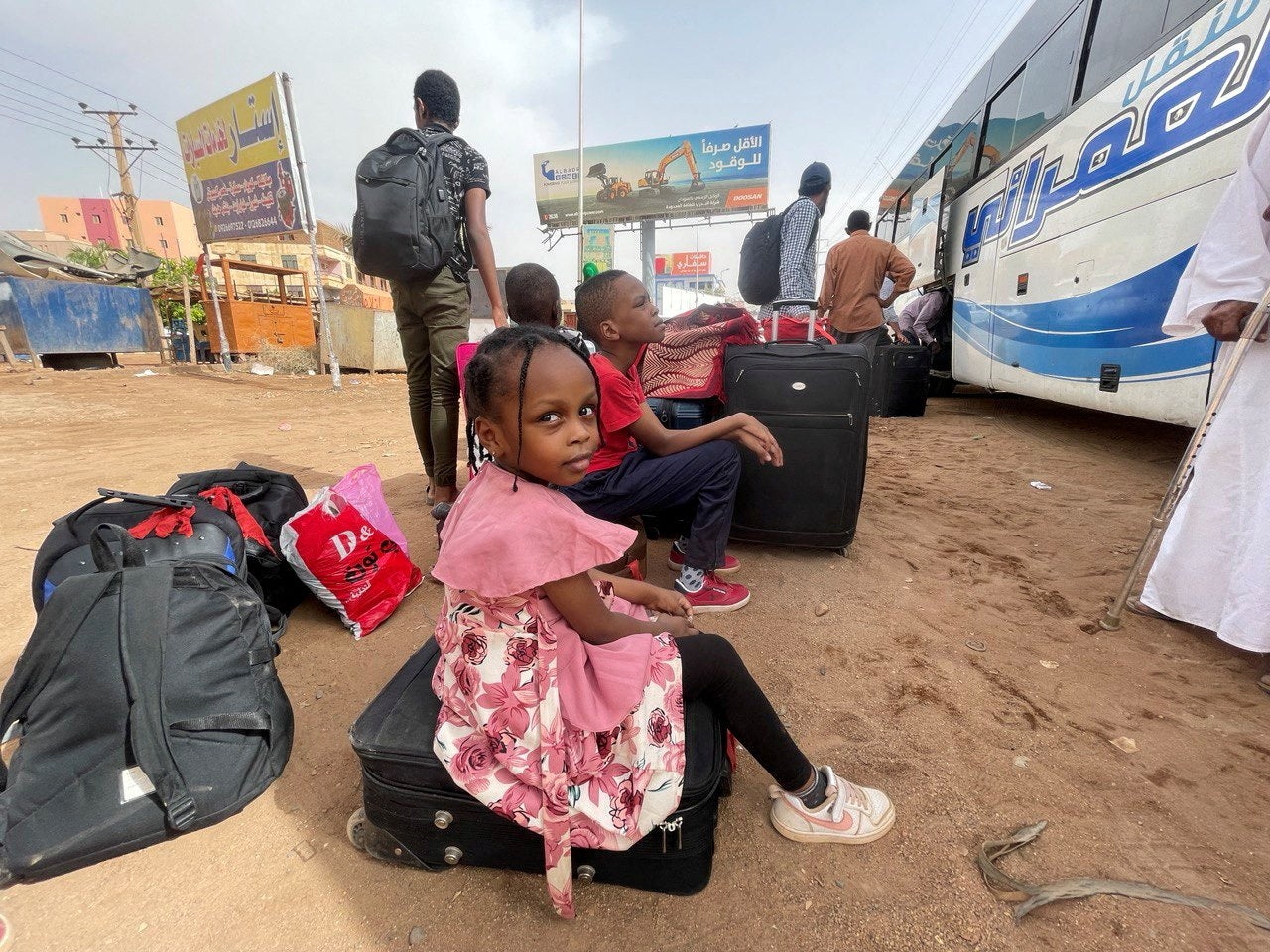The government must act now on Sudan, or face the gravest of consequences
Editorial: The evacuation of Khartoum is fast developing into an astonishing story of complacency and incompetence

What is being done to help the several thousand British nationals trapped in Sudan?
So far the answer, unfortunately and indefensibly, has been that “it depends”. It depends on whether a British citizen happens to be employed by the British embassy, or is related to someone who is; or whether they do not.
The Foreign Office minister taking responsibility for this unfolding crisis, if not disaster, Andrew Mitchell, told the Commons that the government has a responsibility to protect its citizens, but a “particular duty of care” for those employed by the British state.
This does not sit well. The British government surely has a minimum duty of care for all its citizens, whoever they are working for, when their lives are in danger. At this very moment there are British people hiding, terrified, in Khartoum, Omdurman, Darfur and other places that are descending into battle zones.
They are short of food and water, phone services and internet access is becoming patchy, and they are having to destroy pets so they don’t starve to death. This was not a moment to pick and choose who was to be left behind. Yet this is precisely what happened.
Some 1,200 military personnel from an assault brigade, from the Royal Marines, and the RAF, plus the Foreign Office Crisis Centre succeeded in exfiltrating the UK embassy staff and their families. It was an impressive operation; yet there is no official explanation as to why not a single other Briton couldn’t have been lifted out at the same time. Now, a day later, British troops are on the ground again to scope out an entirely separate airlift for those left behind the first time.
It is all the more bewildering, and reminiscent of the disastrous evacuation of Kabul in 2021, because other countries have somehow managed to extract all their citizens – 700 each by France and Germany, 350 by Jordan, 150 each by Italy and Saudi Arabia, and so on.
The French even rescued British subjects on behalf of the British government. All the Foreign Office has done for its citizens is send text messages telling people to stay at home. How they, therefore, find food and water isn’t clear.
A crucial window of opportunity has now been slammed shut because Khartoum airport is out of action. Yet the crisis has been coming for days, if not weeks. Seven days ago, Mr Mitchell assured us that: “Our priority is to protect British nationals trapped by the violence.” But not all British nationals were protected.
Almost casually, Mr Mitchell declares that British citizens literally caught up in the crossfire should now “exercise their own judgement” and if they try to leave the country they do so “at their own risk”. That is not good enough.
Yes, the circumstances in Sudan are very different to those in Afghanistan in 2021, when Dominic Raab refused to take a call from the Afghan prime minister, and stationed himself on the beach in Crete.
There are no British forces stationed on the ground, there is no effective Sudanese government to support rescue efforts, and the situation is obviously extremely dangerous – so dangerous that embassy staff had to be pulled out.
It is all very difficult, and no doubt British diplomats are working hard through allies and international channels to push the warring factions in Sudan towards a ceasefire. But history suggests that is a mission with an uncertain chance of success.
Rather, it feels uncomfortably like the lessons of Kabul have not been learnt, and that nations with far smaller military resources, such as Ireland, have done a far better job of discharging their obligations to their people.
In particular, it is a disgrace that the British ambassador in Sudan and the deputy head of the mission were both absent when the crisis was brewing, and matters were left to the intentional development director.
The evacuation of Khartoum has been fast developing into an astonishing story of complacency and incompetence, even betrayal.
Now that an RAF plane, with troops, has at last landed at Port Sudan, albeit some distance from Khartoum, the Ministry of Defence say they are “evaluating further military options”.
Rishi Sunak has been chairing the relevant Cobra meetings, which is encouraging, but he needs to act without any further delay. Failure will have the gravest of consequences.






Join our commenting forum
Join thought-provoking conversations, follow other Independent readers and see their replies
Comments